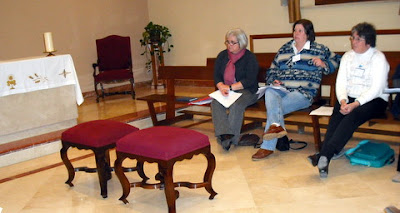Madeira Update

Last Friday, the Revd Neil Dawson, priest-in-charge of Holy Trinity Madeira , wrote with an update on the situation on the island that was devastated by floods a week ago. Fr Neil writes ... …Though the centre was certainly an awful mess of mud and debris, with assistance of soldiers from the mainland and many volunteers and workers from here, ladies in head scarves and muddy aprons, lines of scouts looking muddy but stoic, with buckets and brushes, most of the mess has been cleared up and the town is getting back to normal. Shops, restaurants and banks are back open - cash machines work! Hopefully schools will open next week. Telephones and power is on in most places. One hears so many stories of sadness and near misses. There are of course serious pockets of damage especially around the three rivers running down through the city which became such swollen torrents. Some of the roads near them have been badly damaged, a good knowledge of the back allies is useful when getting a...





















